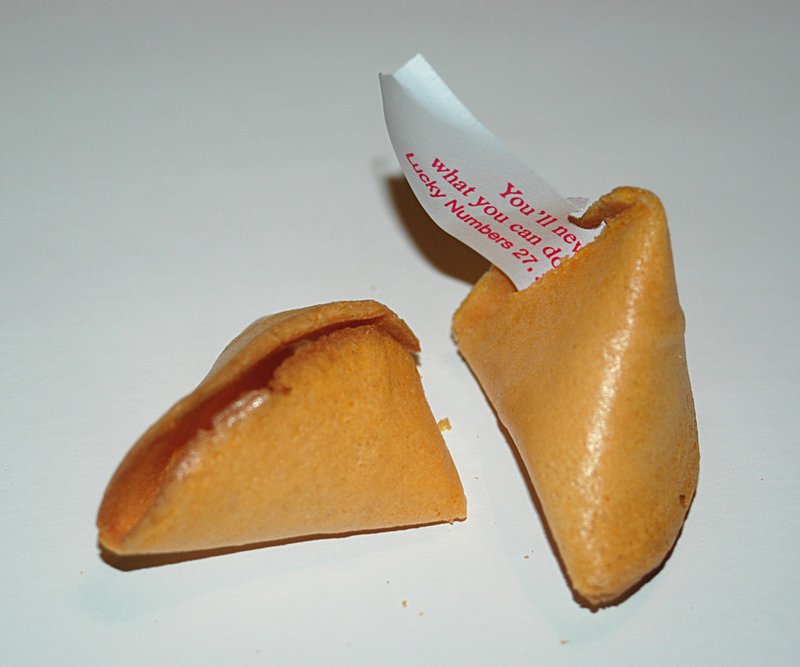Fortune Cookies
Not many foods have as an obscure start as the fortune cookie. Perhaps two of the biggest staples of culture, food and literature, are combined into one through a very cheap method, capable of mass production. They give advice, predict the future, or are at least worth a giggle. It seems like the perfect cultural swiss army knife and appear to be ubiquitous in Chinese culture. But do we really know where they came from?
It turns out that they have absolutely nothing to do with Chinese culture. They were popularized in America from a slight tweak on a Japanese tradition called omikuji. The reason they are so strongly associated with Chinese-American culture is still unclear but a possibility is that around the time that they started gaining traction, Japanese Americans were placed in internment camps because of World War 2 which resulted in Chinese restaurants being able to claim the idea and use it as their own. Regardless of the reason, however, the association doesn't go further than Chinese-Americans. When the fortune cookie was presented in China it was cast out for being too American.
This sort of odd middle-ground of cultures just adds to the mystery of the fortune cookie. If we really consider it, has any one ever paid for a fortune cookie? Have as anyone even really asked for one? They are just always there. But why? And that is a question worth attempting to answer.
Their sole purpose is to entertain you through a sentence or two. These sentences are put in any context the reader decides to create because it is implied that these sentences concern only them and they don't have any information, such as author or the time it was made, to taint the context they set. This is an experience that you could not get from any type of writing anywhere else.
It would be an interesting experience, then, to transpose pieces of different writings onto the fortune cookie's two sentence system-no context- system.
The Library of Babel provides a good contrast to this system. The dichotomy between the fortune cookie and the short story is in what the represent. The shorty story writes about a universe with a library that is infinitely large and contains every combination of twenty five characters ever made into a sequence of a novel, both meaningful and not. To move this story to a fortune cookie would be an ironic twist.
The real question is, however, how would the meaning change? There is a nice superposition of mystery between the fortune cookie method and the plot of the story and one could imagine two ways in which they could be connected. Either there could be a fortune cookie that have the same sort of style as the books in The Library of Babel or to imagine fortune cookies as guides in the universe of the story itself. As the former has already been explored in the actual story, we could have a better contrast by using this example.
Imagining the The Library of Babel as a story in which the characters open fortune cookie after fortune cookie doesn't seem so farfetched. The reason for this is because there seem to be no actual authors of the books in the story, which is the same role that fortune cookies have in society now. With the same qualifier, the difference we will see is projecting ones feelings into a space that is only a couple centimeters wide. In other words, a world where the words found in the inside of a cookie will be as analyzed as novels are in the real world. This will leave people to try to determine their future, as is the function of any fortune cookie and the role of the book in the story, through a significantly shorter means. A full story compacted into about twenty words.
This shift would also lead to a universe much more chaotic than the one made of novels. This is because the one thing that a fortune cookie implies is that the set of words that it contains concerns you directly. This will mean there are no stories of leisure, rather instructions that one must live their life by. This opens that possibility to both the good and the bad interpretations that the ritual of opening the cookie calls for. In this way, I can imagine a proliferation of cults that are devoted to carrying out the destiny assigned to them by these cookies.
This transposition of fortune cookies into the story, The Library of Babel would make for a interesting topic because of how the idea and the cookie complement each other. The idea could really test the boundary and make allegories for close reading and has the advantage of mystery that a novel with a author lacks.
